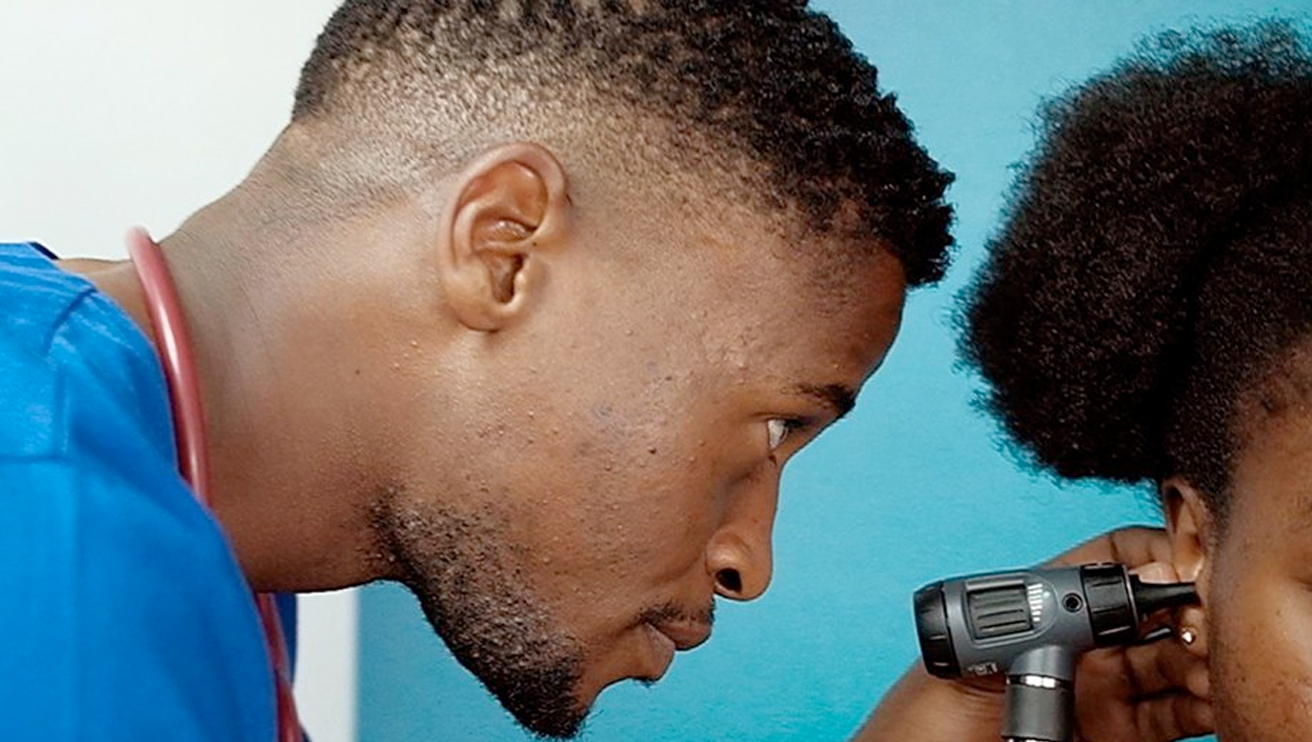Style meets substance in Dr. Fezile Mkhize. A deep love of the human condition led him to a career as a medical doctor.
What’s more, his talent and charisma have resulted in incredible achievements outside the medical field – such as becoming Mr. World South Africa, a social media star and a stylish TV presenter.
Watch his video story
What made you want to pursue medicine?
People. I love people. The love came from watching my mother growing up. As a single parent, she worked harder than anyone I know and would still extend herself to help others with our limited resources. This is where my deep appreciation for the human condition and helping others came from.
Medicine was the natural profession that was selfless and allowed me to impact people in the most profound way. People are incredible. To have the privilege to help them when they are at their lowest point isn’t just an honour but a blessing.
What’s been the hardest part of your career?
The hardest part has been the losses. Within the healthcare sector, the driving factor for most professionals is helping people. When you lose patients after fighting and giving all that you could, it can hit you hard.
What is the best part of your day as a doctor?
There are so many parts that make the day great – from interactions with colleagues to seeing people you’ve helped on the road to recovery. The best part is always when we discharge patients who are back to full health.
Do you believe the perfect career exists?
Perfect has always been a near-mythical concept to me, so I don’t think it exists. Medicine is perfect in the sense that it is rewarding in every aspect.

How do you network in your career?
Networking within the healthcare field is mostly through finding those seniors and specialists that share a common interest.
If you could choose anyone in the world to be your mentor, who would it be?
Tony Robbins or Eric Thomas, two of the best motivational speakers in the world.
What is the one thing you wish people had told you about your career that you didn’t know going in?
It’s okay to not know everything. There is this misconception that being a doctor means you must know everything there is to know about not just the human body and its functions – but also every possible illness it can contract.
There is a shame that comes if you have difficulty recalling something or encountering variables that might have never been in a textbook. The concept of continuous learning without shame or feelings of inadequacy is an important concept to grasp early in your career.
How do you manage your time?
When you start to look at capable people who have schedules that are demanding but are still able to balance all aspects of their life, you start seeing common concepts.
For example, the importance of waking up early to have longer periods of effective time, knowing when in the day you are most effective to get the most important work done and, of course, identifying the signs of burnout.
When is your most productive time of the day?
The early hours of the day are when I’m most alert and creative.
How do you make time for yourself, friends and family?
I actively have to set aside points in the week to engage with those I care about. You realise quickly that if you don’t make it a conscious decision, then relationships can fall by the wayside.

What is the hardest financial lesson that you’ve learned?
Always live within your means. This doesn’t mean using your paycheck as an indicator for what those means are, but to set restrictions on how much you spend of your monthly income on non-essentials. I believe this allows for freedom in the long term and peace of mind.
What advice would you give other young professionals?
I would say the same thing my financial adviser said to me: Always plan ahead for days that aren’t favourable. Investing in short- medium- and long-term portfolios will give you the stepping stones to financial freedom.
What assumption or stereotype about young people would you want to change?
That youth means you are unaware of the world and what happens around you.


